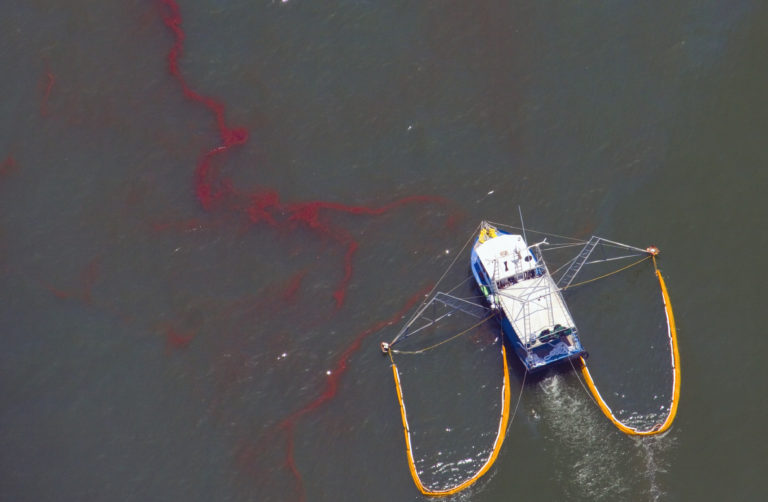Listen to the Past: Don’t Drill Paradise
By: Chris Wilke

There’s an old saying that goes something like this: Those who do not learn from the past are doomed to repeat it. This week marks the 10th Anniversary of one of the worst environmental disasters in U.S. history, but it seems that the oil industry is not in the mood to learn, at least where they think there is money to be made.
On April 20, 2010, an explosion occurred on the Deepwater Horizon, a BP oil-drilling rig in the Gulf of Mexico, tragically claiming the lives of 11 workers. Two days later, on Earth Day 2010, while crews struggled to douse the fire, the rig sank to the gulf’s bottom. An uncontrolled gusher would spew over 200 million gallons of crude oil into the Gulf of Mexico for three months, despite numerous attempts to cap it. It oiled wildlife, killed dolphins and birds, shut down beaches, and pummeled the gulf’s seafood industry, which had provided the livelihoods for the gulf’s fishing communities for decades. Tourism in the area saw a deep crash, as tar balls washed up on beaches as far away as Florida. BP settled for $20 Billion dollars to try to fix the gulf’s waters and repair a regional economy inextricably tied to the sea.
Despite being one of the most highly publicized environmental disasters, it seems that 10 years later, the oil industry has learned few, if any, lessons. And we now can only add to the mix the increasing impacts of climate change that are fueling superstorms, sea-level rise, ocean acidification, and coral bleaching. Our planet is being pushed to the brink by the corporate barons of the fossil-fuel industry and their willful blindness, and the only way to change the situation is to leave these destructive fuels in the ground.
One small country on the front lines of the climate crisis is The Bahamas. Two of the major islands that account for much of The Bahamas’ economy were devastated by Hurricane Dorian, a storm made more severe from global climate change. The low-lying country is particularly vulnerable to sea-level rise, and thus surges from superstorms. Its intact coral reefs are a major draw for tourism and they sustain the fisheries that help support the country.
Why then, is the Bahamian government flirting with the oil industry for deepwater drilling in its pristine waters?
The Bahamas Petroleum Company proposes to drill four exploratory offshore wells—the same types of wells being drilled by the Deepwater Horizon—beginning in 2020 to locate oil for extraction. This short-sighted move places everything the country holds dear at enormous risk: fishing, tourism, diving, coral, whales and dolphins, and of course the health and well-being of its citizens.
“We are a water nation, and everything that we do involves the ocean,” says Rashema Ingraham, executive director of Waterkeepers Bahamas. “As if we are not already fretting over the fact that our landmass is diminishing before us, being consumed by storm surges and coastal erosion, we now have to worry about the decisions being made by our leaders, on our behalf, that will affect what really makes us The Bahamas—the islands of shallow waters—and allow foreign investors to use it as their playing field, thus ruining our oceans.”
If a blowout were to occur, it would not only threaten The Bahamas. It could impact the Florida Keys, Miami, and the beaches of the southeast Atlantic coast of the United States which are directly in the path of prevailing winds and currents.
To make sure this does not happen, Waterkeeper Alliance is working closely with Waterkeepers Bahamas and Bahamas Reef Environment Educational Foundation to make sure that all impacts and alternatives are considered, and to help the government say no to deepwater drilling.
The world does not need more oil. A current worldwide glut has led to a market crash amid record low prices. Instead, we must transition to renewable energy like wind and solar. In addition to its precious pristine waters, two things The Bahamas have in abundance are wind and sunshine.
As we commemorate the 50th Earth Day and the 10th Anniversary of the Deepwater Horizon Gulf oil disaster, let’s also make sure we learn from the past and not risk a repeat of one of the worst environmental disasters in history.
We must say no to drilling in The Bahamas.
Feature image of the Deepwater Horizon spill by Hurricane Creekkeeper John Wathen.